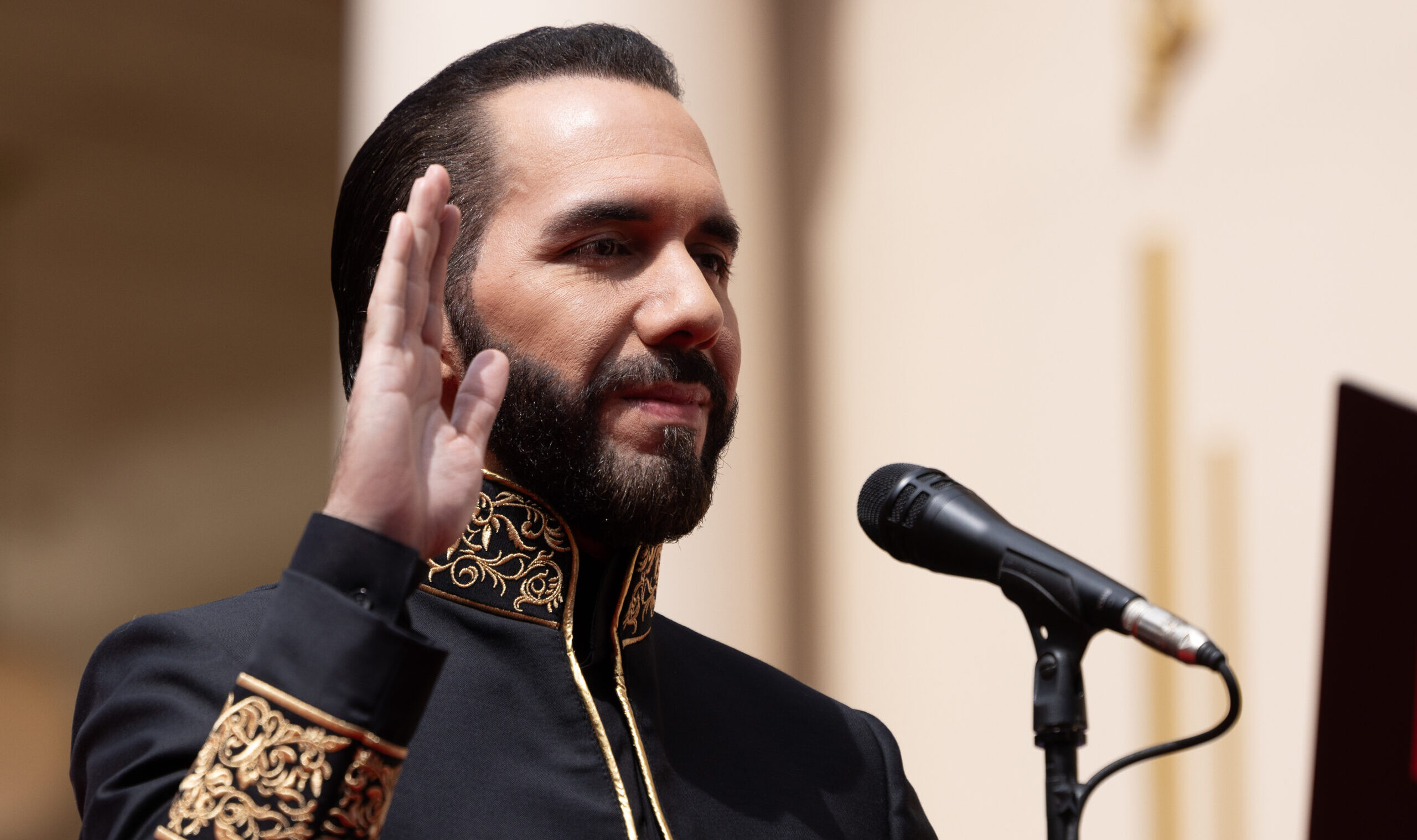Foreign Affairs
On crime, Bukele took on the blob and won.

The most important sentence in the Nayib Bukele profile and interview in TIME magazine is a simple question to the interviewer: “How can I ask the Salvadoran people, who often have modest meals like beans and tortillas for dinner, to pay taxes to provide meat and chicken to prisoners who have killed their family members?”
Walk the streets and ask around if this sentiment makes sense. If you pay taxes, do you think the money should go to the benefit of those who are, legally and morally, inferior to you? The question itself is absurd, but the modern liberal worldview does not allow such stark hierarchy. Are citizens better than illegal aliens? Are normal law-abiding people better than those who break laws? Do they all deserve the same treatment, under the vague and increasingly unjust umbrella of “human rights,” just because they share the happy accident of a genetic and chromosomal similarity with a fellow ape?
These are not hypotheticals. The postwar world is more than anything defined by the vague superstructure of the human rights complex. Its organs are above democratic mandates. They are also above politics itself. Wars don’t end as they used to, because wars are not fought as they were prior to the Second World War. Wars that end—Grozny, Sri Lanka—don’t follow postwar norms of conduct. States that disregard human rights and NGOs deter mass migration, as evident recently by Saudi Arabia going as far as shooting illegals instead of inviting them. The difference is most stark in the realm of crime and disorder.
In Bukele’s case, it is a positive change for El Salvador. As the TIME reported,
At 43, he has remade a nation that was once the world’s murder capital, turning it into a country safer than Canada, according to Salvadoran government data. Bukele’s policy of mano dura—iron fist—drove an aggressive crackdown on vicious gangs that has jailed 81,000 people and led to a precipitous drop in homicides. After decades of violence, fear, and extortion, citizens can move freely in former gang-controlled “red zones,” lounge in parks, and go out at night. El Salvador now markets itself as the “land of surf, volcanoes, and coffee,” hosts international events like the Miss Universe pageant, and draws tourists and cryptocurrency enthusiasts to coastal enclaves like “Bitcoin Beach.” The transformation helped Bukele cruise to re-election earlier this year; his approval rating these days tops 90% according to the latest CID Gallup poll.
And for that, he was duly chastised by the U.S. government, with Kamala Harris tweeting, “We have deep concerns about El Salvador’s democracy.” Bukele ignored all that, and fought the drug cartels and criminals in a manner similar to a prewar, pre-NGOcracy world. As Bukele’s security minister himself mentioned, his administration kicked out the NGOs and then “studied the enemy, like in any war,” with handbooks cataloging gang tattoos, graffiti, and slang to identify suspects’ affiliations. “There are many priests…but few are exorcists.”
Subscribe Today
Get daily emails in your inbox
These are not new, perception-altering philosophical insights. Bukele explains his “philosopher king” outlook about the greater ethics of punitive deterrence: “We don’t put them in jail to punish them. We put them in jail to get them off the street. They can’t be on the streets. They cannot be in the community besieging their neighbors. We catch them and remove them from society by putting them in a cell.”
A very simple logic. George Savile, the First Marquess of Halifax, would have agreed: “Men are not hanged for stealing horses, but that horses may not be stolen.” The restoration of order by a legitimate leader isn’t “authoritarian”; it is in fact the most basic function of statesmanship that would have been recognized by anyone in the preceding 6,000 years of human governance and history. One reason among others why we have a crisis of legitimacy and the longing for strongmen in our times is that men have forgotten that basic governing norm because liberals have convinced themselves they are not bound by the laws of nature and that history itself has ended. They have convinced themselves that arbitrarily defined “rights” on the basis of shared humanity trump governing compacts or peace.
To Bukele’s credit, he is bringing the “great man theory” of history back by exercising his agency and standing opposed to structural unaccountable forces.

